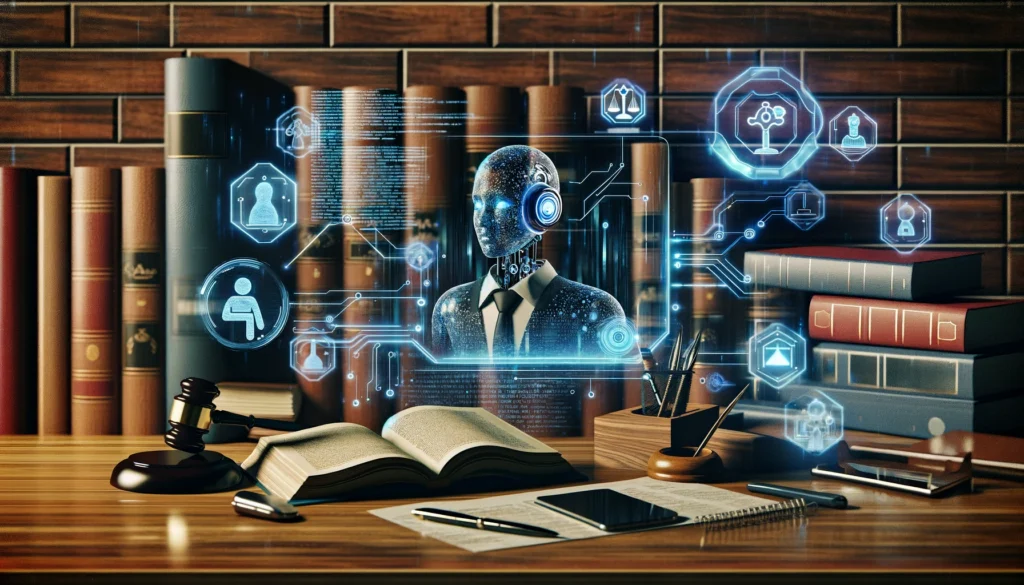
Unlocking the Potential of ChatGPT in Estate and Trust Administration
The legal landscape is witnessing unprecedented integration of AI technologies, notably ChatGPT, in multiple domains, including estate and trust administration. This convergence of AI and legal practice fosters unparalleled efficiency and precision in managing client estates and trusts, delivering significant advantages in document drafting, client communication, research, and more.
Streamlining Document Drafting and Review
ChatGPT excels in generating detailed, custom-tailored legal documents, enhancing accuracy and reducing drafting time significantly. Several key strategies help ensure this efficacy.
Crafting Nuanced Prompts for Precise Drafts
To obtain tailored drafts, legal practitioners should create specific and detailed prompts. For instance, rather than asking “draft a will,” a more targeted prompt like “draft a last will and testament for a 70-year-old client with two children and charitable interests” yields a more relevant output.
Utilizing Multilingual Capabilities for Diverse Client Needs
ChatGPT’s multilingual capabilities are a boon for law firms with a diverse clientele. By instructively creating prompts, attorneys can generate documents in multiple languages, thereby catering to non-English speaking clients with precision. Prompts could encompass, “Draft a power of attorney document in Spanish for a client with specific medical preferences.”
Ensuring Precision with Customized Templates
Creating and utilizing customized templates further enhances precision. Establish a template that integrates specific client information seamlessly by prompting, “Use the attached template to draft a trust document incorporating client details X, Y, and Z.” This ensures consistency and accuracy across all drafts.
The benefits extend beyond drafting purposes, seamlessly transitioning into the realm of client communication and interaction.
Efficient Communication and Client Interaction
Effective communication forms the cornerstone of sound legal practice. ChatGPT becomes a pivotal tool in refining client communications, ensuring interactions are both professional and prompt.
Prompt Strategies for Accurate Client Communication
Utilize ChatGPT to summarize complex legal language into understandable terms for clients. For example, the prompt “Explain the terms of this estate plan in layman’s language for our client” can yield a client-friendly summary.
Enhancing Email Responses and Follow-ups
ChatGPT can draft precise and professional email responses swiftly. Example prompts include, “Compose a follow-up email summarizing our last meeting’s discussed estate planning steps, requesting client confirmation.” This facilitates timely communication, maintaining client trust and satisfaction.
Leveraging Summarizations for Quick Client Updates
Legal practice demands expeditious updates to clients. ChatGPT can assist in summarizing lengthy court decisions or legal correspondences succinctly. Prompting, “Summarize this 10-page document for a client update” saves time while keeping clients informed.
Seguing into another crucial application, research enhancement and legal precedent search further delineates ChatGPT’s instrumental role in legal practice.
Research Enhancement and Legal Precedent Search
In the labyrinth of legal research, ChatGPT serves as a beacon, providing streamlined, precise results that aid in building strong legal cases.
Advanced Query Techniques
Specific, detailed prompts are essential for nuanced research queries. Instead of a generic question, use an advanced query like, “Find recent estate tax law changes affecting trusts established in the last five years.”
Sourcing Statutes and Regulations Efficiently
ChatGPT’s capacity to pull statutes, regulations, and other legal provisions efficiently can be activated with prompts such as, “List federal and state exemptions relevant to estate tax in California for the year 2023.” This brings pertinent legal information to the forefront promptly.
Integrating Case Law Findings with Prompt Engineering
For thorough legal precedent searches, integrating specific case details into prompts is crucial. An effective prompt might be, “Find case law precedents pertaining to irrevocable trusts in the Second Circuit from the last decade.”
Post-research, the emphasis often shifts towards accurate data entry and record maintenance, ensuring comprehensive and organized client records.
Accurate Data Entry and Record Keeping
Routine data entry and meticulous record-keeping are paramount in legal practice, and ChatGPT significantly streamlines these tasks, reducing manual errors and enhancing efficiency.
Automating Routine Data Entry Tasks
ChatGPT enables automation of repetitive data entry tasks through well-structured prompts. For instance, prompting “Enter client data from this intake form into our estate management system” automates data population processes.
Ensuring Accurate and Timely Updates with Detailed Prompts
To keep client records accurate and current, use prompts like, “Update Mr. Smith’s trust documents to reflect new beneficiary details as per the attached file.” This ensures timely and precise record maintenance.
Utilizing ChatGPT for Organizing and Categorizing Information
Effective categorization of disparate legal documents is facilitated through prompts such as, “Categorize these estate planning documents by type and priority.” This organization aids quick retrieval and reference.
Additionally, managing deadlines and workflow is vital to maintain seamless operations within legal firms.
Managing Deadlines and Workflow Clarification
Efficient workflow management, coupled with deadline tracking, is imperative for operational success in legal practices. ChatGPT offers relevant solutions here as well.
Prompt Ideas for Calendar Management
Establishing and managing deadlines with prompts like, “Set a calendar reminder for filing the estate tax return on March 15th,” helps prevent missed deadlines and enhances workflow efficiency.
Creating Checklists and Task Assignments
ChatGPT can generate comprehensive checklists through prompts such as, “Create a task list for completing the XYZ estate administration process.” This ensures that all actions are accounted for systematically.
Setting Up Timely Reminders
Regular reminders are crucial in legal practice. Prompting, “Remind me to review the trust documents with the client on February 20th,” ensures timely communications and action items.
Moving forward, continuous professional development is essential, and ChatGPT can significantly contribute by enhancing learning and engagement.
Elevating Professional Development and Learning
Keeping abreast of legal advancements and enhancing skill sets is imperative. ChatGPT facilitates continuing education seamlessly.
Harnessing ChatGPT for Continuing Education
Through targeted prompts, such as “Provide a summary of recent changes in estate law,” legal professionals can stay informed and updated.
Exploring New Areas of Law Through Interactive Learning Prompts
Prompts like, “Provide an introductory overview of digital asset management in estate planning,” help attorneys explore and learn new areas of law interactively.
While leveraging AI, maintaining ethical standards and data security remains paramount.
Ethical Considerations and Data Security
Navigating the integration of AI in legal practice mandates strict adherence to ethical guidelines and data security measures.
Maintaining Confidentiality with Sensitive Information
Legal practitioners must ensure client confidentiality while using AI tools. Prompts should avoid unnecessary details and be structured to prioritize privacy.
Navigating Ethical Use of AI in Legal Practice
Attorneys should utilize AI ethically, ensuring compliance with legal standards. Deploying AI responsibly ensures it serves as a robust auxiliary to human expertise.
This thoughtful integration of AI in estate and trust administration exemplifies how technology can augment legal practice, enhancing both efficacy and client satisfaction while adhering to ethical standards.


